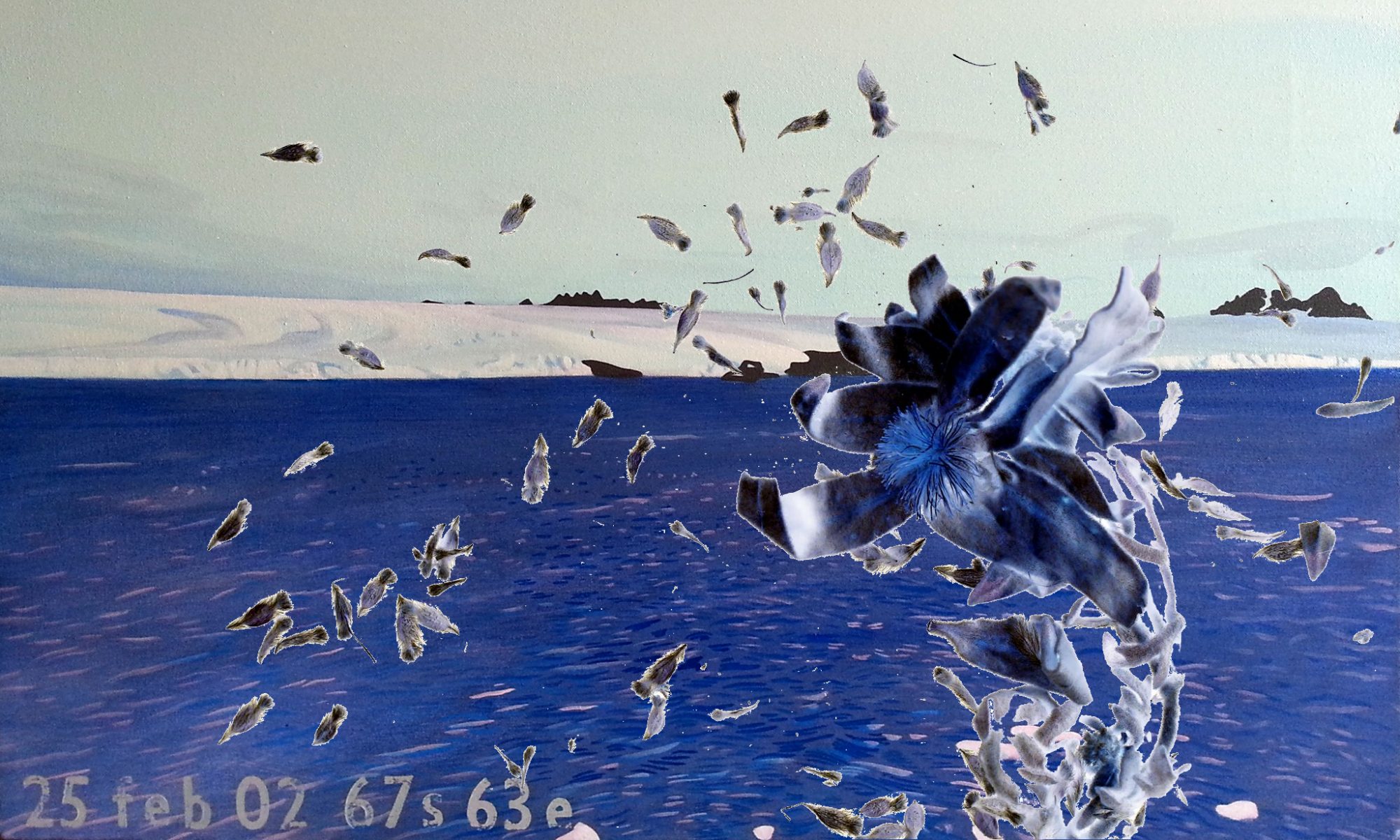.

.
A bluebell, poem and blog post suggest the value of conversation.
The bluebell may hold atoms from my father’s ashes. For me the flower symbolizes my father’s continuity, through my entire material and immaterial being. He passed on his genes. He passed on his ideas and feelings for me to consider, and to shape in my own ways. He passed these on through our conversations: walking, making, talking, writing letters, sitting together in the bush and the garden.
Walt Whitman’s poem defines humans as part of the natural world, within which words are formed. He implies the natural world has a voice of its own, and that words are expressions of its self, including us. Following Whitman’s idea, flowers are words. Does this imply they have their own stories, beyond human interpretation? My bluebell will have other stories beyond what I or others read into it. A scientist may read a part of its story by analyzing its genes. A literary theorist may study the meanings of bluebells in poetry. But Whitman is writing about words in a different sense, in a way that is sensed, in fact, through our bodies.
Ross Gibson’s story suggests to me that “afterwards and in spite of all the talk” that defines egalitarian policies (I read environmental reciprocity), it is how humans actually behave (towards each other and the environment, for example) that shapes our world. Conversations that shaped originally sound policies need to continue, through generations, to keep their values alive, and embodied in our actions.
How can we do this? We can talk between our selves about what is important. We can make art, read art, make science, read science, and we can…
Stop listening to me…Sit for a while: there are mountains in the distance to which the best response is hush.
Francis Spufford, 2007; 15
.
.
A song of the rolling earth Walt Whitman, 1881
.
A song of the rolling earth, and of words according,
Were you were thinking that those were the words, those upright lines? those curves, angles, dots?
No, those are not the words, the substantial words are in the ground and the sea,
They are in the air, they are in you.Were you were thinking that those were the words, those delicious sounds out of your friends’ mouths?
No, the real words are more delicious than they.Human bodies are words, myriads of words…
Air, soil, water, fire – those are words,
I myself am a word with them – my qualities interpenetrate with theirs – my name is nothing to them,
Though it were told in three thousand languages, what would air, soil, water, fire, know of my name?
The complete poems of Walt Whitman, Pub. Wordsworth Editions 2006 p.166
.
Encompass… Ross Gibson, 2007
I remember seeing a TV interview, more than twenty years ago, with Gore Vidal. The discussion strutted over to the state of the American union – all the promise in the nation’s commencement, all the tawdriness in its Reaganite present. Momentarily Vidal mollified and beamed as he spoke of the Declaration of Independence, the way it conjured a possible world nearby in time, a world verging in from an envisaged future that was shaping the present.
Without any of his customary wryness or irony, Vidal asserted that the Declaration is one of the supreme creative products of human history. How, he wondered, how did a tiny gaggle of isolated idlers produce one of the great imaginative and pragmatic artefacts of human culture?
Vidal rocked back in his chair and allowed a few beats of silence to herald his own answer to his own question.
It happened, he said, because these people were NOT idlers, even though they may have appeared so to an outside observer. In fact, they were busy conversing, and thus they were inventing a world of possibility, a world first looming in the weightlessness of their conjoined minds and then emerging in the heftiness of law. They envisaged a new world by observing, reading, listening, talking and responding to each other. In the utopian language of the Declaration, they made a realm of possibility and inaugurated their glory. Next in the legislative language of the Constitution, they commenced their failure, not least because they failed to expunge slavery from the emerging Union. (The clauses protecting the right to bear arms would backfire a long time later.)
And now, he intoned glumly, the promise of that world has been thoroughly sullied by generation after generation who have declined to continue the ever-evolving conversations that brought the idea of independence up to the verge of reality.
So the sullied outcome of contemporary America is not a flaw in the conversations, Vidal concluded, rather it’s a flaw in the actions that occurred after and in spite of all the originating talk that made America.
For ‘America’, read ‘democracy’.
And go figure.
From ConversationsII, Art Gallery of NSW, 4 September 2008
.
